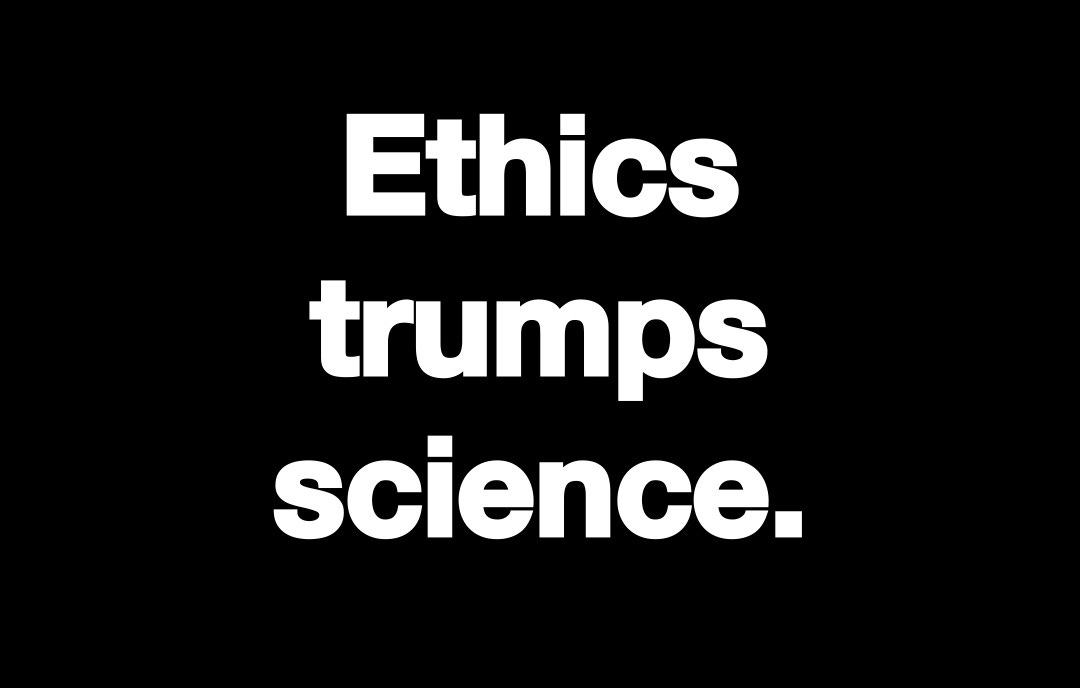Why Vaccine Mandates are Unethical
Summary of the strongest arguments against vaccine mandates
1. Vaccine mandates imply that all humans are born in a defective, inherently harmful state that must be biotechnologically augmented to allow our unrestricted participation in society, which amounts to discrimination on the basis of healthy, innate characteristics of the human race. This devaluation of the innate human constitution is not only universally dehumanising, but it perverts the very concept of human rights; discrimination against the unvaccinated implies that being born human is no longer a guarantee of full human rights. A broader analysis of this point was published here: https://jme.bmj.com/content/48/4/240.
2. Medical consent must be free – not coerced – in order to be valid. Any discrimination against the unvaccinated is economic or social opportunity coercion, precluding the possibility of valid medical consent. The right to free, uncoerced medical consent is not negotiable, under any circumstances, because without it we have no rights at all; every other right can be subverted by medical coercion. Crucially, by accepting any medical treatment imposed by coercion we would acquiesce to the taking away of the right to free medical consent not only from ourselves but from our children and from future generations, and we do not have the right to do this. Acquiescence to medical coercion is always unethical, even if the mandated intervention were a placebo.*
3. Vaccines are known to occasionally cause deaths of healthy people. When an employee is required to receive vaccination as a condition of employment, that employee is economically coerced to participate in an activity where a percentage of employees are expected to die ‘in the course of employment’ as a direct result of the mandated activity. This goes against the fundamental principles of medical ethics and workplace safety. It may be objected that infectious pathogens also kill people, but these two categories of deaths are not ethically equivalent. Infection with a pathogen is not mandated, whereas deaths resulting from mandatory vaccination are mandated deaths, a legalised killing of some people for the prospective benefit of the majority. Critically, any discrimination against the unvaccinated amounts to a violation of the right to life, because a small percentage of the targeted population are expected to die as a result of this coercive treatment. By refusing to accept mandated vaccines we take an ethical stance in defence of the right to life.**
I also object to the commonly made assertion that the people who do not comply with vaccine mandates are “unvaccinated by choice”. Apart from the fact that social and economic opportunity coercion removes our free choice in this matter, being unvaccinated is fundamentally not a choice; we were born this way. The premise of being “unvaccinated by choice” is as absurd as “having two hands by choice”. The right to preserve our innate characteristics without being discriminated against is paramount.
An earlier version of these arguments were formally submitted to the Inquiry into Public Health Amendment Bill 2021 (No 2) ACT and subsequently published here.
*Difference between Informed Consent and Free Consent
Informed Consent: I am informed of the risks and benefits of this medical procedure, and that I will lose my job and profession if I refuse it.
Free Consent: I might not fully understand the scientific merits of this medical procedure, but I know that my rights and freedoms will not be restricted if I refuse it.
Informed Consent amounts to nothing if the patient is economically or socially coerced to accept the procedure irrespective of the relevant information. Consent must be free, not just informed, before the information about the medical risks vs benefits would be a sufficient condition of consent.
**The right to life is denied by imposing conditions under which a person may be arbitrarily deprived of life
The ‘right to life’ entails that no person may be arbitrarily killed. If a person is coerced to accept conditions under which they may be arbitrarily killed, that person's ‘right’ to life is thereby denied, therefore violated. Vaccine mandates amount to coercing people to accept conditions under which any person may be arbitrarily killed, thus denying their individual right to life.
Moreover, “it is not necessary for an identifiable individual to be affected in order for a human right to be engaged so as to trigger the obligations imposed on public entities by s 58(1) [of the Human Rights Act 2019]. A potential effect on the rights of a class of persons is sufficient.” Innes v Electoral Commission of Queensland & Anor (No 2) [2020] QSC at 292.



Validity of vaccine mandates is exclusively an ethical issue, not a medical issue, not a scientific issue; the mandates would be just as unacceptable even if the vaccines were fully approved and fully prevented transmission. Scientific arguments against the mandates imply, falsely, that medical mandates would be acceptable under some empirical conditions. Any scientific argument disputing the efficacy and safety of vaccines must not make the claim that the mandates are ‘therefore’ unacceptable (this would be an equivocation between utility and ethics, ultimately serving the utilitarian agenda).
100%. I have argued this throughout my book Neither Safe Nor Effective. Even if the vaccines were wonderfully safe and effective, any mandate, any coercion is antithetical to human liberty, and therefore unacceptable anywhere. I write several medical exemptions per week, never refusing to do so, because this principle is so fundamental.